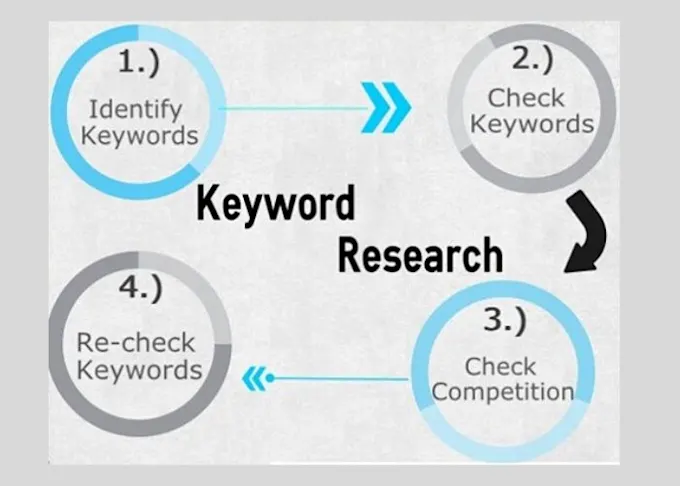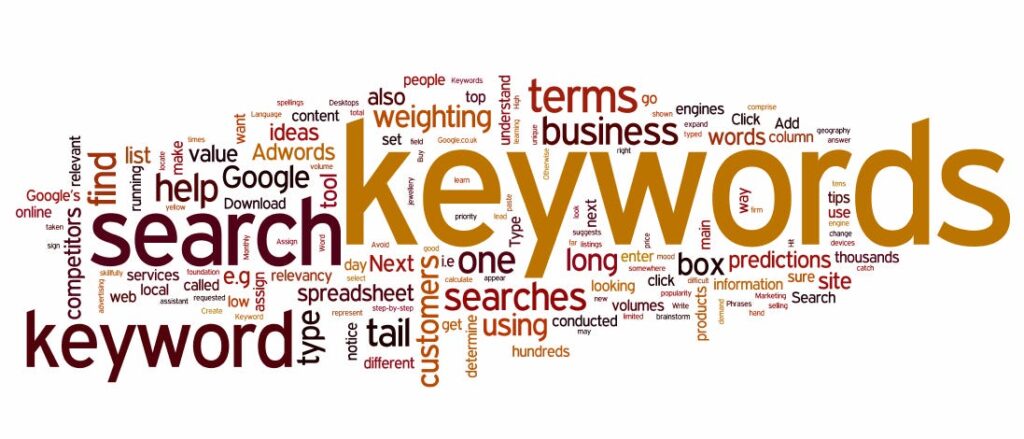Why Most Local Businesses Get Keywords Wrong

Here’s the brutal truth about ranking locally – most small businesses are targeting keywords that either nobody searches for or everybody’s fighting over.
I see this constantly. Hair salons trying to rank for “hair salon [city]” when their customers search for “highlights near me” or “haircut open Sunday.” Restaurants chasing “restaurant [city]” while people actually search for “pizza delivery” or “romantic dinner spot.”
The thing is, your customers don’t think like business owners. They don’t care about your industry terms. They care about solving their immediate problem.
Last month I worked with a carpet cleaner who was stuck on page 3 for “carpet cleaning Phoenix.” But people with wine stains on their carpet at midnight aren’t searching for “carpet cleaning.” They’re searching for “emergency carpet stain removal” or “wine stain removal service.”
We switched focus. He’s now #1 for eight different emergency cleaning keywords and books twice as many jobs.
Understanding Local Search Intent (It’s Different Than You Think)

Local keyword research starts with understanding why people search locally. They’re not browsing. They need something fixed, delivered, or done today.
Local searchers fall into three categories:
I need help NOW – “emergency plumber,” “24 hour towing,” “urgent care near me” I’m comparison shopping – “best pizza near me,” “dentist reviews,” “cheap oil change” I’m planning ahead – “wedding venue [city],” “summer camps near me,” “tax preparation”
Each type searches differently and converts at different rates. Emergency searches convert like crazy but have low volume. Planning searches have high volume but longer sales cycles.
Figure out which category your customers fall into, then hunt for keywords accordingly.
How to Find Keywords Your Local Customers Actually Use

Forget expensive tools for now. Start with free methods that show you real search behavior.
Google Autocomplete is Your Friend
Type your service + “near me” and see what Google suggests. These suggestions come from real searches, not some marketing team’s wishful thinking.
Try these combinations:
- [Your service] near me
- [Your service] [your city]
- [Problem you solve] near me
- [Emergency version] [your city]
I did this for a locksmith in Portland. “Locksmith Portland” was obvious but competitive. But Google autocomplete showed me “locked out of car Portland,” “house lockout service,” and “emergency locksmith 24/7.” Way easier to rank for and better converting customers.
People Also Ask Boxes Are Gold
Search for your main keywords and scroll to the “People also ask” section. These are real questions from real customers.
Screenshot these questions. Each one is a potential blog post topic and keyword opportunity.
Check Your Google My Business Insights
If you have a Google Business Profile, check your insights. It shows you what people searched for before finding your business.
Look for:
- Discovery searches (how people found you)
- Brand vs non-brand searches
- Geographic patterns
- Popular times for searches
This data comes straight from Google and shows actual customer behavior, not keyword tool estimates.
Listen to Your Phone Calls
This one’s huge but most people skip it. How do customers describe their problems when they call?
“My toilet’s backing up” becomes “toilet backup repair” “The pilot light went out” becomes “pilot light repair service” “I locked my keys in the car” becomes “car lockout service”
Your customers are literally telling you their search terms. Write them down.
Local Keyword Categories That Actually Work

Geographic Modifiers That Matter
Not all location keywords are equal. Here’s what actually gets searched:
High volume:
- near me
- [city name]
- in [city]
- [city] area
Medium volume but specific:
- [neighborhood name]
- [ZIP code]
- around [city]
- close to [landmark]
Low volume but converting:
- [city] emergency
- open now [city]
- 24/7 [city]
- same day [city]
Service + Intent Combinations
Instead of just “[service] [city],” try these patterns:
Problem-focused:
- broken [thing] repair [city]
- emergency [service] [city]
- cheap [service] near me
- fast [service] [city]
Solution-focused:
- [service] service [city]
- professional [service] [city]
- licensed [service] near me
- [service] company [city]
Timing-focused:
- same day [service] [city]
- weekend [service] [city]
- after hours [service] [city]
- 24 hour [service] near me
Real Examples That Show How This Works
Case Study: Auto Repair Shop in Denver
What they were targeting: “auto repair Denver” (impossible to rank, 50+ competitors)
What customers actually searched:
- “check engine light Denver”
- “car won’t start repair”
- “brake repair near me”
- “oil change open Sunday”
Results: Went from page 6 to page 1 for 12 different specific repair keywords. Bookings increased 40% in six months.
Case Study: Wedding Photographer in Austin
What they were targeting: “wedding photographer Austin” (every photographer in town was fighting for this)
What customers actually searched:
- “outdoor wedding photographer Austin”
- “small wedding photographer”
- “engagement photos downtown Austin”
- “wedding photography packages under $2000”
Results: Started booking higher-paying clients who found them through specific searches instead of competing on price.
Case Study: HVAC Company in Phoenix
What they were targeting: “HVAC Phoenix” (generic, competitive, low intent)
What customers actually searched:
- “AC repair Phoenix emergency”
- “furnace not working”
- “ductwork cleaning near me”
- “HVAC maintenance service”
Results: Doubled their emergency call volume and increased average job value by focusing on specific problems instead of general services.
Tools for Local Keyword Research (Free and Paid)

Free Tools That Don’t Suck
Google Keyword Planner – Shows local search volume and competition levels Google Trends – Compare keyword popularity in your area vs other locations
Answer The Public – Find question-based keywords locals ask Google My Business insights – Real data from your actual customers
Paid Tools Worth the Money
Ahrefs – Best for competitor research and finding keywords they rank for SEMrush – Good for local pack analysis and tracking local rankings BrightLocal – Specifically designed for local SEO keyword research Whitespark – Local citation finder that also shows keyword opportunities
Start with free tools. Upgrade when you’re making money from local SEO.
Competitor Research That Actually Helps
Don’t just copy what your competitors are doing. Study what’s working for them and find gaps you can fill.
Check competitors for:
- What keywords they rank for that you don’t
- What services they mention that you offer better
- What questions they answer that you could answer better
- What local areas they serve that you also serve
I helped a cleaning service in Seattle by analyzing their top three competitors. Found they were all ignoring move-out cleaning keywords. My client focused on those, captured that entire market segment.
Creating Content Around Local Keywords

Location Pages That Don’t Suck
Most location pages are boring and generic. “We serve [city] and surrounding areas.” Yawn.
Instead, create pages that actually help people:
- “[Service] in [neighborhood]: What you need to know”
- “Why [city] residents choose us for [service]”
- “Common [problems] in [city] and how we solve them”
Include local landmarks, neighborhood names, and area-specific information.
Blog Posts That Target Local Intent
Local problem + solution posts:
- “Why [city] homes have [specific problem]”
- “Best time for [service] in [city]”
- “Cost of [service] in [city]: What to expect”
Local resource posts:
- “Complete guide to [permits/regulations] in [city]”
- “Local [suppliers/resources] we recommend”
- “History of [your industry] in [city]”
FAQ Content for Local Searches
Answer the questions people ask about your services in your area:
- “Do I need a permit for [service] in [city]?”
- “How much does [service] cost in [city]?”
- “What’s the best [season/time] for [service] in [city]?”
- “How quickly can you get to [neighborhood]?”
Ranking Locally: Beyond Just Keywords
Keywords are important, but they’re not everything for local search.
Google Business Profile Optimization
Complete every field:
- Business hours (including special hours)
- Phone number (local number if possible)
- Address (exactly as it appears on other citations)
- Categories (choose the most specific ones)
- Attributes (wheelchair accessible, women-led, etc.)
Add regular content:
- Photos of recent work
- Updates about services
- Special offers
- Community involvement
Local Citations and Consistency
Make sure your business name, address, and phone number are identical across all platforms:
- Google My Business
- Yelp
- Industry directories
- Local chambers of commerce
Inconsistency confuses Google and hurts your local rankings.
Reviews and Reputation Management
Reviews are a major local ranking factor. More importantly, they influence whether people actually call you.
Encourage reviews by:
- Asking happy customers directly
- Following up after completing jobs
- Making it easy (send direct links)
- Responding to all reviews, good and bad
[Link to: “Local SEO Services”]
Tracking Your Local Keyword Performance

Metrics That Actually Matter
Local pack rankings – Where you show up in the map results Organic local rankings – Where you rank in regular search results Click-through rates – How many people click when they see your listing Conversion rates – How many clicks become customers Call volume – Are more people calling from search?
Free Tracking Methods
Google Search Console – Shows which keywords bring you traffic Google My Business insights – Tracks how people find and interact with your listing Google Analytics – Shows where your website traffic comes from geographically
When to Invest in Paid Tracking
Consider paid local rank tracking tools when:
- You’re competing in multiple locations
- You need daily ranking updates
- You’re managing multiple businesses
- You need detailed competitor analysis
Common Local Keyword Mistakes (That Kill Results)

Targeting Keywords That Are Too Broad
“Restaurant Miami” has thousands of competitors. “Cuban sandwich delivery Miami” might have three.
Ignoring “Near Me” Searches
Mobile searches with “near me” are huge and growing. If you’re not optimizing for these, you’re missing easy opportunities.
Forgetting About Voice Search
People ask voice assistants questions differently than they type. “Where’s the nearest oil change?” vs “oil change near me.”
Focusing Only on Your City
People search for businesses in neighboring cities too. Include nearby areas in your keyword research.
Not Thinking About Timing
Some services are seasonal or time-sensitive. Include keywords like “emergency,” “same day,” “weekend,” or “24/7” when relevant.
The Local Keyword Research Process (Step by Step)
Week 1: Research Phase
- List all your services
- Brainstorm how customers describe their problems
- Use Google autocomplete for each service + location
- Document “People also ask” questions
- Analyze your Google My Business insights
Week 2: Expansion Phase
- Research your top 3 competitors
- Use keyword tools to find volume and competition data
- Look for question-based keywords
- Identify seasonal or emergency opportunities
- Group keywords by intent and difficulty
Week 3: Content Planning
- Assign keywords to existing pages
- Plan new pages for high-opportunity keywords
- Create content calendar for blog posts
- Optimize your Google My Business profile
- Plan local citation building
Week 4: Implementation
- Optimize existing pages for target keywords
- Create new location or service pages as needed
- Start publishing local-focused blog content
- Build or fix local citations
- Set up tracking for your target keywords
Scaling Local Keyword Research for Multiple Locations
If you serve multiple cities or areas, don’t just copy and paste your keyword research.
Each location might have:
- Different local terminology
- Unique problems or needs
- Different competition levels
- Seasonal variations
- Local regulations or requirements
Research each location individually, even if your services are the same.
The Future of Local Search (What’s Coming)
Voice search is growing – Optimize for conversational queries Visual search is emerging – Include alt text and image descriptions Hyperlocal is getting more important – Neighborhood-level targeting matters more Reviews integration is increasing – Review content affects rankings more Mobile-first is everything – Desktop local search is practically dead
Start Small, Scale Smart
Don’t try to rank for 100 keywords at once. Pick 10-15 that you can realistically compete for and focus on those first.
Start with:
- 2-3 emergency/high-intent keywords
- 3-5 service-specific local keywords
- 2-3 question-based keywords
- 3-5 long-tail variations
Once you’re ranking for those, expand to more competitive terms.
Stop Guessing, Start Ranking
Most local businesses approach keyword research like throwing darts blindfolded. They guess what people search for instead of finding out.
Your customers are telling you exactly what they search for – in phone calls, reviews, and their actual Google searches. You just need to listen and document it.
Start today by:
- Writing down how your last five customers described their problems
- Searching for your services + “near me” and documenting the autocomplete suggestions
- Checking your Google My Business insights for actual search terms
- Looking at what questions people ask in your industry forums
Real local keyword research isn’t about tools or tricks. It’s about understanding your customers and meeting them where they’re already searching.
Ready to stop fighting for impossible keywords and start ranking for ones your customers actually use? The businesses winning local search aren’t the ones with the biggest budgets – they’re the ones who understand what their customers really search for.
Pick one keyword from your research today and create content around it. Your future customers are already searching for you – make sure they can find you.
Frequently Asked Questions
What’s the difference between local and regular keyword research? Local keyword research focuses on geographic intent and immediate needs. People searching locally are usually ready to hire someone today, while general searches might be for information. Local keywords often have lower volume but much higher conversion rates.
How do I find local keywords if I’m in a small town?
Small towns actually have advantages – less competition and more specific searches. Focus on “near me” terms, neighboring towns, and emergency services. Use Google My Business insights to see how people actually find your business.
Should I target every city I serve? Start with your main location and 2-3 nearby cities where you get the most business. It’s better to dominate a few areas than spread thin across many. You can always expand later once you’re ranking well locally.
How long does it take to rank for local keywords? Local rankings can happen faster than national SEO – sometimes 2-4 months for less competitive terms. Emergency and specific service keywords often rank quicker than general terms. Consistency and local signals matter more than time.
What if my local keywords have very low search volume? Low volume local keywords often convert better than high volume ones. Someone searching “emergency locksmith [neighborhood]” at 2 AM is ready to hire immediately. Focus on intent over volume for local searches.
